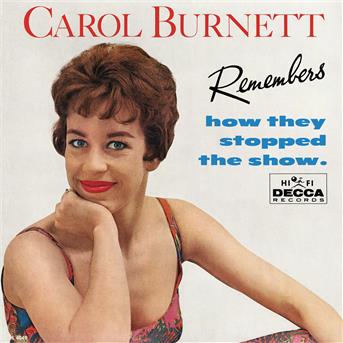Carol Burnett didn’t grow up under the bright lights of Hollywood. She grew up in a small, one-room apartment near a boarding house, raised by her grandmother while her parents struggled with addiction. As a child, she would sneak into movie theaters just to escape the sound of her mother drinking — a momentary break from chaos, where laughter felt like a lifeline.
Despite a childhood marked by hunger, poverty, and instability, Carol Burnett discovered something many never do: the healing power of humor. It was her armor, her compass, and eventually, her career.
Her big break didn’t come from family connections or financial privilege — it came from a stranger. At UCLA, where Burnett studied journalism before shifting her focus to drama, she couldn’t afford the tuition for theater classes. One day, an anonymous benefactor handed her a $50 bill — a life-altering gesture with a simple message: “Pay it forward.” And she did — in ways no one could have imagined.

Redefining What a Woman Could Be on Television
In 1967, The Carol Burnett Show premiered on CBS. At the time, the idea of a woman leading a variety show was almost laughable — but not in the way Burnett would make it. Executives warned her that variety shows were “for men,” that slapstick wasn’t “ladylike,” and that audiences wouldn’t accept a woman making a fool of herself onstage. Carol didn’t just reject that narrative — she obliterated it.
Over 11 groundbreaking seasons, her show won 25 Emmy Awards and changed television forever. She didn’t rely on glamour or play into traditional roles. She threw herself headfirst into absurdity, into wigs and prosthetic teeth, into pratfalls and character studies. Whether playing the eternally frustrated Eunice, the clueless Mrs. Wiggins, or the delusional fading star Nora Desmond, Carol Burnett brought a wild brilliance to every sketch. Her facial expressions alone could steal a scene. Her iconic laugh breaks — those moments where she couldn’t help but crack up — weren’t mistakes; they were magic. Viewers loved her not in spite of those moments, but because of them.

A Life Offstage — and the Grief Behind the Giggle
While Burnett’s on-stage persona was vibrant and hilarious, her off-stage life wasn’t without heartache. She endured personal loss, including the devastating death of her daughter, Carrie Hamilton, from cancer at just 38 years old. She rarely spoke publicly about these tragedies, choosing instead to channel her strength into her work.
But for anyone watching closely, the vulnerability was always there — not just in her dramatic roles, but in the way she held space for laughter and pain to coexist. Burnett had a unique ability to connect with people, to show up week after week like a friend who never flinched, no matter how hard life got.

A Legacy of Generosity and Grace
Carol Burnett wasn’t just a star — she was a mentor, a trailblazer, and a deeply generous performer. She didn’t hog the spotlight. She created it for others. She launched careers, uplifted co-stars, and redefined what it meant to be a leading woman in comedy.
At the end of every episode of her show, Burnett would tug her ear — a quiet, sweet gesture that meant “I love you” to her grandmother, the woman who raised her. It was a reminder that even at the height of fame, she never forgot where she came from.

More Than Laughter — A Lifeline
What Carol Burnett gave the world wasn’t just comedy. It was comfort. For every child growing up with pain in the next room, she offered proof that joy could survive even the darkest beginnings. That you could be messy, emotional, loud — and still be loved. Still be brilliant.
She didn’t just make people laugh. She made them feel seen.
Carol Burnett is living proof that resilience can wear a red curtain dress and a fake mustache — and still change the world. That laughter doesn’t come after the pain, but through it.
And that sometimes, the funniest people are the ones who know sadness best — and choose to rise anyway.
